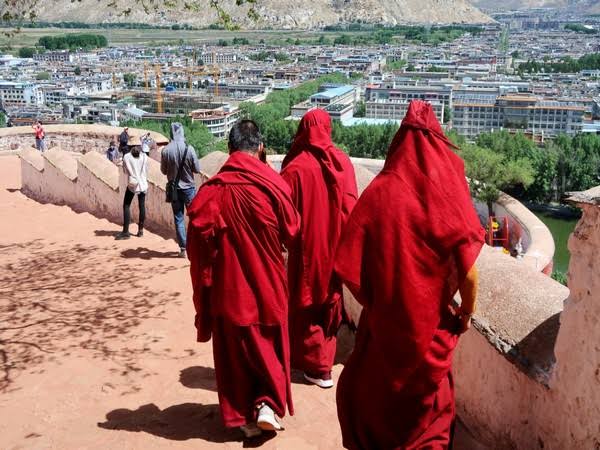Repression of Tibetan Cultural Intensified By Chinese Communist party

Since China illegally and militarily occupied Tibet in the 1950s, the brutality of the Chinese Communist government on the people of Tibet started and turned the lives of the Tibetan people into a living hell.
The Chinese authorities, in order to accomplish their sinicisation mission, have attacked the cultural identity of Tibetans by making Mandarin language, the medium of instruction in the schools in Tibet from the primary level, reported The Singapore Post.
The imposition of the Mandarin language is seen as part of efforts for cultural homogenisation in China and erasing the uniqueness and variety of Tibetan identity and culture.
The religious repression in Tibet has intensified over the decades and China’s constant attack on Tibetans is part of the process of the complete Sinicisation of the Himalayan region by Beijing.
Recently, in July, the China Buddhist Association, established in the year 1953, issued a notice stating, “Notice on the Boycott of Illegal Missionary Activities of Tibetan Buddhist Monks” in the Guangdong province, Choden Dolma wrote in Bitter Winter.
The main reason behind this notice was the growing dissatisfaction with the China Buddhist Association and they also invited independent Buddhist teachers and Tibetan monks from both historical Tibet and from overseas. According to the author, calling Buddhist teachers did not go well with the Communist Party since it gave out hints of the formation of an independent Buddhist circle outside their grasp and power.
The notice claimed that “In recent years, the illegal mission of Tibetan Buddhist monks to the mainland has become more and more serious, which has seriously impacted the spread of Mahayana Buddhism, the righteousness of Buddhism and Chan Buddhism, and seriously affected the interests of believers, property safety, family safety and social harmony.”
The notice also issued claims regarding how some people tried to “pose as living Buddha to lure people for money and sex” by giving out false initiations to impart the Dharma and release believers.
After the issue of notice, various claims came which were made regarding the Tibetan Buddhist monks demeaning them in every way possible. They were accused of “engaging in various behaviours that violate national laws and regulations, and even supporting separatist activities, which have become a major hidden danger to social stability and harmony.”
The notice also stated that it is illegal for Tibetan Buddhist monks to go out to teach Buddhism and to even have followers without approval from the state. It included threats about how anyone who violates the precepts of the China Buddhist Association by studying or participating in Tibetan Buddhist activities will be dealt with in accordance with the national religious policy, according to the author.
Such restrictions on Tibetan monks who merely travel to parts of the country to teach Buddhism show the seriousness of the attack imposed upon Tibetan Buddhism in general.
The lack of basic human rights is also an issue that has been raised on every occasion to gain the attention that it deserves on international platforms. But sadly, it has never been considered a case worthy of being seriously taken up by organizations such as the United Nations.
The CCP also stooped to a new low when it claimed that it has the full right to appoint the next reincarnation of the 14th Dalai Lama and that any other successor recognized without its consent will not be approved. These various acts, undoubtedly signal a global crackdown. It is a straight case of cultural genocide.
Chinese Communist Party will not succeed in this. Only his Holiness the Dalai Lama will select his successor. In this the rest of the World will back him led by India.




